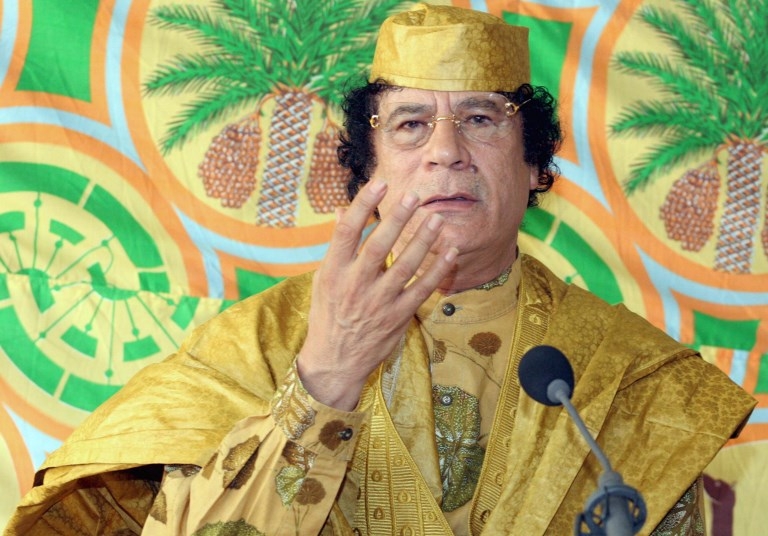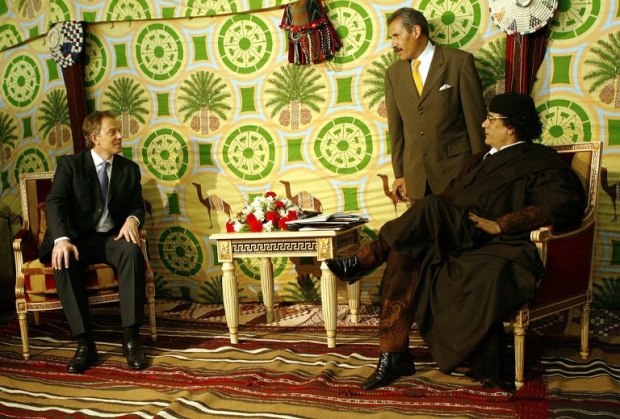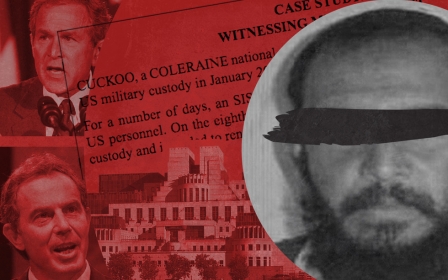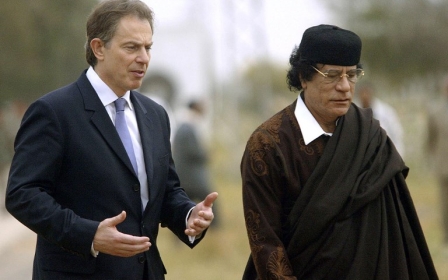UK efforts to deport Gaddafi foes akin to 'throwing them to the devil', judge says

LONDON - The British government’s attempts to deport a number of Libyan exiles into the hands of Muammar Gaddafi's security services - despite knowing they were opponents of the Libyan leader - could be described as "throwing people... into the jaws of the devil incarnate", a high court judge in London said on Thursday.
Five Libyans allege they suffered systematic abuse, wrongful imprisonment and the threat of deportation as a result of a secret pact between the UK’s security and intelligence agencies – MI5 and MI6 – and the former Libyan leader.
The court heard that they had been accused of being a threat to the UK’s national security on the basis of information extracted from Abdul-Hakim Belhaj, a Libyan dissident, after he was kidnapped in 2004, secretly rendered to Tripoli in a joint MI6-CIA operation, and tortured.
They were then detained in the UK pending deportation to Libya.
Lawyers for the British government told the high court that what happened to Belhaj was not relevant to the action that was subsequently taken against the five men.
They are also arguing that the government would not have breached the men’s rights under the European Convention on Human Rights - which includes a prohibition on torture - if the then-home secretary Charles Clarke had given no thought to those rights when he approved a decision to detain them pending deportation to Libya.
Their right not to be tortured would have become an issue only when they were about to be put on an aircraft to be flown from the UK to Tripoli, they argue. This did not eventually happen.
The government has admitted that Clarke had been told nothing about Belhaj’s rendition when he approved the decision to detain the men pending deportation.
Lisa Giovannetti, counsel for the government, told the court that the national security case for deportation would have been seen as compelling.
The judge, Mr Justice Jay, said that to deport the men to Libya on the grounds that they were seen as a threat to UK national security could be said to be “to throw them to the jaws of the devil... the devil incarnate”.
The claimants’ lawyers are arguing that the British government’s defence in the case should be dismissed by the court.
'Partners in crime'
Earlier, the court heard the claimants’ counsel, Tom de la Mare, describe the Libyan and British intelligence agencies as “partners in crime in unlawful and extremely shady behaviour” at a time when British Prime Minister Tony Blair's government was cultivating a close relationship with Gaddafi.
While developing a “touchy feely” relationship between the UK and Gaddafi’s Libya, de la Mare said, British officials indicated to Gaddafi their willingness to “engage in covert operations outside the rule of law”, to “turn a blind eye to the use of torture or at the very least to the real risk thereof”, and to “reap benefits from interrogation under torture”.
May told the couple: “It is clear that you were both subjected to appalling treatment and that you suffered greatly.
“The UK government’s actions contributed to your detention, rendition and suffering. We are profoundly sorry for the ordeal that you both suffered and our role in it.”
A second victim of a 2004 M16-CIA rendition operation, Sami al-Saadi, was kidnapped and flown to Tripoli along with his wife and four young children. He settled his claim in 2012 and was paid £2.2m ($2.8m) by the British government.
The cases brought against the British government by the rendition victims and by the five current claimants were based upon a mass of documentation that was discovered in Tripoli during the 2011 revolution.
The papers included a letter from Blair to Gaddafi, addressed “Dear Mu’ammar” and signed “best wishes yours ever Tony”, in which he thanked the Libyan leader for the “excellent cooperation” of the two countries’ intelligence agencies.
Despite this cooperation, Blair wrote, his government was struggling in its attempts to persuade the UK courts to permit the deportation of his opponents from Britain to Libya.
At the time, the British government was also drawing up a Memorandum of Understanding (MoU) with Libya, under which the Libyans would agree not to mistreat anyone deported there from the UK - despite the UK’s intelligence agencies already having been involved in the mistreatment of Belhaj and al-Saadi and their families.
Giovannetti said the court could not assume that the MoU could not have been “reasonably and legitimately relied upon” by British officials at that time.
Nobody could draw the inference - from the UK’s involvement in what happened to Belhaj - that the Libyans would not care about the MoU, she argued.
The hearing continues. Jay predicted that whatever decision he makes is likely to be appealed. “We are ensnared in years of misery,” he said.
Stay informed with MEE's newsletters
Sign up to get the latest alerts, insights and analysis, starting with Turkey Unpacked
Middle East Eye delivers independent and unrivalled coverage and analysis of the Middle East, North Africa and beyond. To learn more about republishing this content and the associated fees, please fill out this form. More about MEE can be found here.





